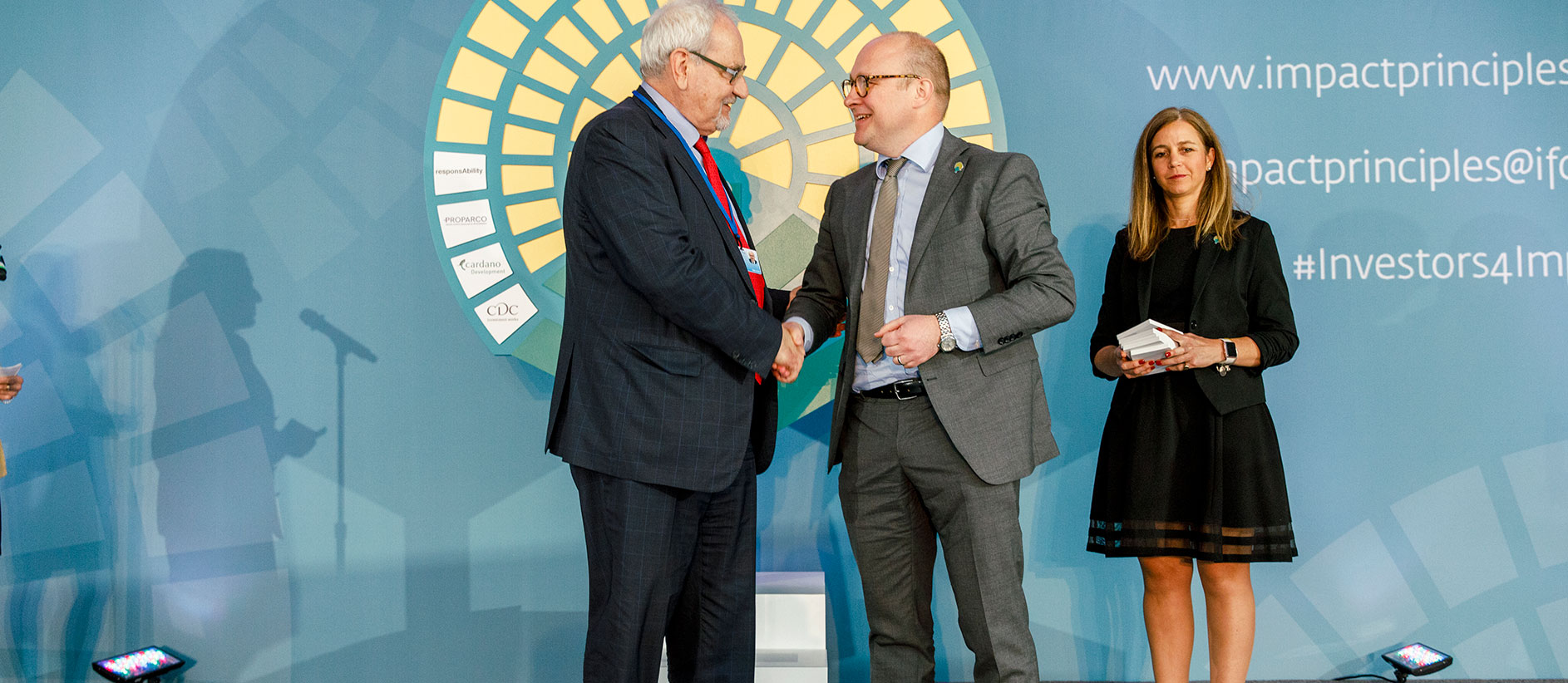In April 2019, IFC , a member of the World Bank Group, announced that 60 investors are adopting the Operating Principles for Impact Management – a market standard for impact investing in which investors seek to generate positive impact for society alongside financial returns. The Principles bring greater transparency, credibility and discipline to the impact investing market.
The organizations adopting the Principles collectively hold over USD 350 billion in assets invested for impact, which they commit to manage in accordance with the Principles. Future investments for impact will also adhere to the Principles. The Principles provide a clear common market standard for what constitutes an impact investment, addressing concerns about “impact-washing.” IFC led the development of the Principles, in collaboration with leading asset managers, asset owners, asset allocators, development banks, and financial institutions, including a three-month public stakeholder consultation.
“We believe there is now potential to bring impact investing into the mainstream,” said IFC CEO Philippe Le Houérou. “Our ambitions are very high – we want much more money managed for impact because there is no time to lose to deliver on the billions to trillions agenda.”
In a new report – Creating Impact: The Promise of Impact Investing – IFC estimates investor appetite for impact investment could today be as much as USD 26 trillion. This includes USD 5 trillion in private markets involving private equity, non-sovereign debt, and venture capital, and as much as USD 21 trillion in publicly traded stocks and bonds.
To fulfill this potential, impact investing needs to offer investors a transparent basis on which they can invest their money to achieve positive measurable outcomes for society in addition to financial returns. The Principles facilitate this process by creating clarity and consistency regarding what constitutes investments managed for impact to bolster confidence in the market.
IFU has adopted the principles alongside a number of the European DFIs.
“Investments with an impact are vital for improving the livelihood of people in developing countries and meeting the UN Sustainable Development Goals. I believe that creating operating principles for impact management can help investors in finding better investments as well as attracting additional capital, which is surely needed,” said Torben Huss, CEO of IFU.
The Principles draw on IFC’s experience in investing in emerging markets to achieve strong development impact and financial returns. They reflect best practices across a range of public and private institutions. They integrate impact considerations into all phases of the investment lifecycle: strategy, origination and structuring, portfolio management, exit, and independent verification. Critically, they call for annual disclosure as to how signatories implement the Principles, and independent verification of impact management systems, which will provide credibility to the implementation of the Principles.
Søren Peter Andreasen (right), General Manager of EDFI, represented IFU at the launch in Washington D.C.. To the left IFC CEO Philippe Le Houérou.

